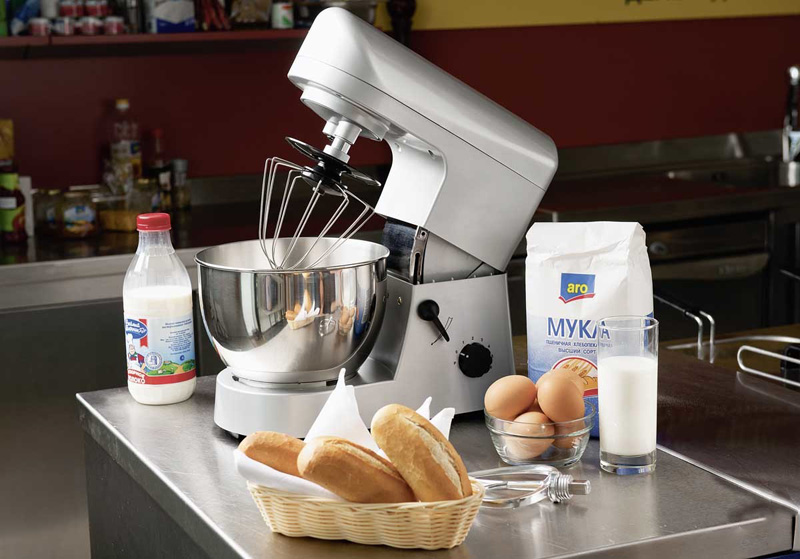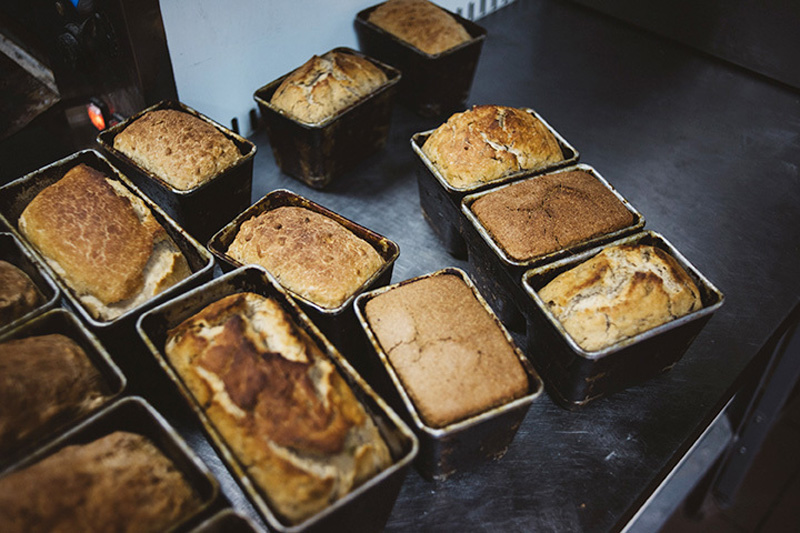Business idea: home bakery
Opening a bakery is a fairly popular business today. Bread with a crispy crust, hot soft buns and all kinds of pastries have always been and will be in demand - how can anyone refuse such a delicacy? These products are regularly bought off the shelves by all segments of the population. And if you think through your business plan well and organize your business wisely, a bakery even at home will become profitable.
Business Features
Often the production of flour and confectionery products is the prerogative of large companies. But these manufacturers use exclusively well-developed recipes and are unable to present unusual ideas and specific baked goods: dietary or, for example, according to old recipes from past years. For this purpose, they must change production and technology, which costs a lot of money. In turn, the advantages of a home mini-bakery are precisely this:
- it does not require large investments;
- you can even run it in your kitchen;
- it provides the right to work without dealers and resellers, which creates attractive prices for buyers;
- You can easily change the assortment depending on customer interests and raw materials.
Business registration
So, you have decided to start baking at home, but you are not yet sure of success, because home baking is also not an easy project.
For the first time, you can do without registering a business, because it’s better to start building a regular clientele. If you want to go exclusively legal route, then you can start cooperation with an existing legal entity or individual entrepreneur who has permission for this type of activity. The offer to have a percentage of the profit and not worry about business processes at all is very tempting, and many will gladly agree to the meeting. However, in order to avoid problems with regulatory authorities, it is better to be registered with this company for at least a quarter of the rate. Still, you shouldn’t dwell on this option for too long, as it also has its drawbacks.
One of the most important points when it comes to legalizing your business is product sales options. If your clients are employees of nearby offices, your friends, colleagues and acquaintances, then you can do without registration for the first time. If you plan to supply the product to stores, then registration is required. Moreover, do not forget about product certification, which will also be necessary when working with stores.
If you decide to go exactly this way, then it is important to wisely choose the organizational and legal form: individual entrepreneur or LLC.
An individual entrepreneur is someone in between an individual and a legal entity. This form is registered primarily when a person works alone or with a very small staff. An individual entrepreneur is quite easy to open and also easy to close, and the tax situation is much simpler. The most suitable option is UTII, also suitable is the simplified tax system of 15% or 6%. Accounting is also quite simple; you can do it yourself or hire an outsourced employee.
A limited liability company is more suitable for large companies, which most often already have property on their balance sheet. An LLC is also easy to open, but it is much more difficult to close, and the tax rate is an order of magnitude higher than that of an individual entrepreneur.
Thus, for a small business organized at home, the legal form of Individual Entrepreneur is much more suitable.
Product range
An important issue is the assortment and its formation. A variety of products will always attract the attention of buyers. And so that their interest does not fade away, it is necessary to focus not only on price and quality, but also on creating new flavors and fillings for baked goods.
You can specialize in one thing or cover a wider range:
- make pies and other products from yeast dough that can be baked or fried;
- making cakes, pastries, gingerbreads, etc., now this is quite a popular trend;
- bake all kinds of bread.
There are many options, but the main thing is to find your niche, develop and improve your technologies and production, because the products of large factories will never be able to compete with the products of a home bakery. And when using various natural baking mixtures, you can achieve success in creating new unusual tastes. For example, rye flour and heat-treated malt will give baked goods a darker color, unusual taste and aroma. In addition, mixtures not only increase shelf life, but also improve product quality and help establish production technology (dry starter helps bread rise faster). And their consumption is quite small.
Necessary equipment
For the production of bakery products not in production volumes, there is no need to spend money on expensive equipment. Almost everything you need is already in your kitchen:
- gas or electric stove (preferably with convection);
- pots and baking trays;
- bread molds;
- table scales;
- refrigerator and freezer;
- knives.
However, if you have to knead the dough in large volumes, it is better to purchase a dough mixer. It will make this process much easier. Its cost usually starts from 20,000 rubles. A dough mixer with a capacity of 16 liters is more than enough for a mini-bakery at home.

Where and how to purchase raw materials
The most necessary raw material is, of course, flour. It can be of different varieties. It depends on your range. For example, it is now very popular to make yeast-free bread from wholemeal flour.
It makes no sense to purchase baking flour from large factories - they are not interested in small batches, and large purchases are not suitable for home production. The best option would be to purchase raw materials from wholesalers.
Of course, in addition to baking flour, you will also need:
- sugar and salt;
- oil;
- yeast;
- thickener, leavening agent, etc.;
- many ingredients for filling and decoration.
Startup costs
The main costs for organizing a mini-bakery at home are the equipment that we talked about earlier. Almost everyone in the house already has one, with the exception of molds and a dough mixer. But we must not forget about the costs of raw materials. Its quantity depends on the assortment.

Payback
Usually, since there is practically no initial investment required in your mini-bakery, they pay for themselves in a few months. It all depends on the scale of your planned production. In addition, in Russia there are programs to support small businesses that can help budding entrepreneurs.
The markup on products is usually about 50–100%.
Conclusion
We must not forget that buyers are always looking for new and unusual products, which can be found precisely from such entrepreneurs. And the better you can accommodate different tastes, the more successful your home mini-bakery will be. If you have the opportunity to open this “delicious” business, you shouldn’t spend a lot of time thinking about it. You can safely begin to implement your ideas.
